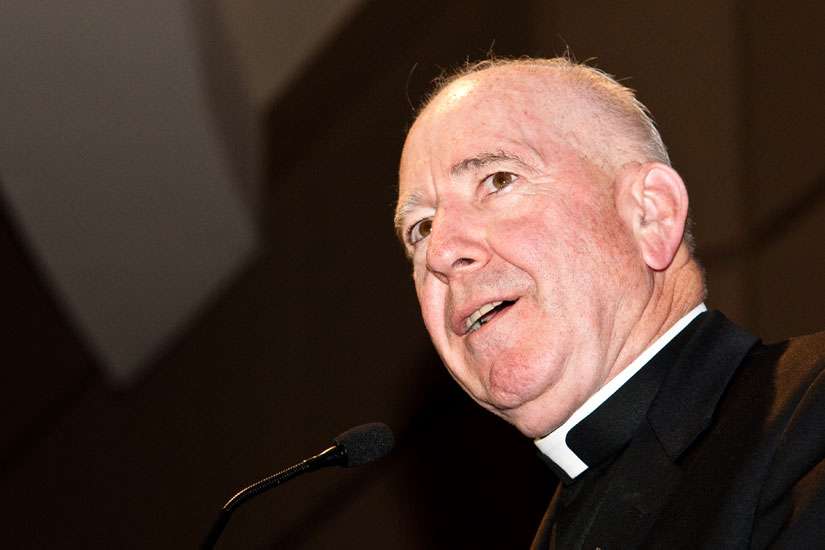“Important questions have been raised about the July 2015 court decision and the agreement to release the Catholic Entities from its financial obligations,” said Aboriginal Affairs Minister Carolyn Bennett’s public affairs team in an e-mail to The Catholic Register. “Minister Bennett invites Canadians to engage not only in the discussion around this issue, but in asking how all of us can promote reconciliation.”
It isn’t just the Catholic dioceses of northern Canada and various religious orders who have moral obligations to see the Indian Residential School Settlement process through to the end, but all Canadians who are obliged to play their part in a true reconciliation with Canada’s aboriginal people, according to Aboriginal Affairs and Northern Development Canada.
“All parties to the settlement agreement have a critical role to play in renewing the relationship with indigenous peoples in Canada. As the minister said, Canada continues to encourage the Catholic Entities — and all other parties to the settlement agreement — to continue their reconciliation efforts, regardless of legal obligations.”
But government spokespeople will not say whether Ottawa believes the Catholic Entities have fulfilled their legal obligations.
“The Government of Canada is neither the overseer of the implementation of the Indian Residential School Settlement Agreement nor the arbiter of whether or not any of the parties to the IRSSA have fulfilled their obligations,” said the public relations team. “The supervising courts remain the authority for determining whether the terms of the Indian Residential Schools Settlement Agreement, including ‘best-efforts,’ have been met.”
The Catholic Register revealed in January of this year that a $25-million “best-efforts” fundraising campaign mandated by the court under the Indian Residential Schools Settlement Agreement fell $21-million short of its goal. With the deadline for the Truth and Reconciliation Commission final report coming up at the end of 2015, a Saskatchewan judge ruled the Catholic Entities had fulfilled their monetary obligations in July of 2015. On Oct. 30 government lawyers decided against appealing that decision.
While Catholic Entities chairman Archbishop Gerard Pettipas regards the massive shortfall in fundraising as regrettable, he is seeking to move on from the legal process and failed fundraising campaign to focus Catholic efforts on a permanent, dynamic process of reconciliation.
“So now that we’ve done everything we were deemed to have supposed to have done, (the Catholic Entities) are closing shop,” said Pettipas.
But with The Globe and Mail reviving the issue in a series of front-page stories, the Canadian Catholic Church as a whole needs to take over where the Catholic Entities’ seven-year Moving Together campaign stumbled, said Catholic scholar and columnist Michael Higgins.
“Really strong leadership at this time would go a considerable way to repair some of the damage that has been created,” Higgins said. “And that seems to me to be the critical imperative.”
Legal obligations may have been met, but Canadian Catholics expect more of themselves than $3.7 million out of a $25-million objective. The Canadian Conference of Catholic Bishops and the dioceses in southern Canada can no longer hold themselves apart from a national movement toward reconciliation, Higgins said.
“I have to confess to a little bit of disappointment that, with the exception of Archbishop Pettipas, the bishops don’t seem to be talking. Perhaps they prefer to stay below the radar, but I think this is a serious business actually,” said Higgins.
It’s not just a matter of Catholic reputation, but of credibility.
“It’s on the national agenda and quite frankly it affects our credibility,” said Higgins. “I’m not so much concerned about reputation per se. I am concerned about the credibility of the Church and its Gospel mandate.”
Blaming the Catholic Entities for failure in the near-impossible task of raising money to repair damage done by 150 years of complex, poorly understood Canadian history is both beside the point and unfair, said Higgins.
“I don’t think the Catholic Entities thought in any way that they would try to find some kind of strategy to avoid meeting their obligations. I don’t think they set out to try to raise the funds in a lacklustre way, or that they didn’t consider that there was a moral component that had to be met. I don’t think the entities in-and-of themselves should be singled out for identification as failing to take their obligations seriously.”


